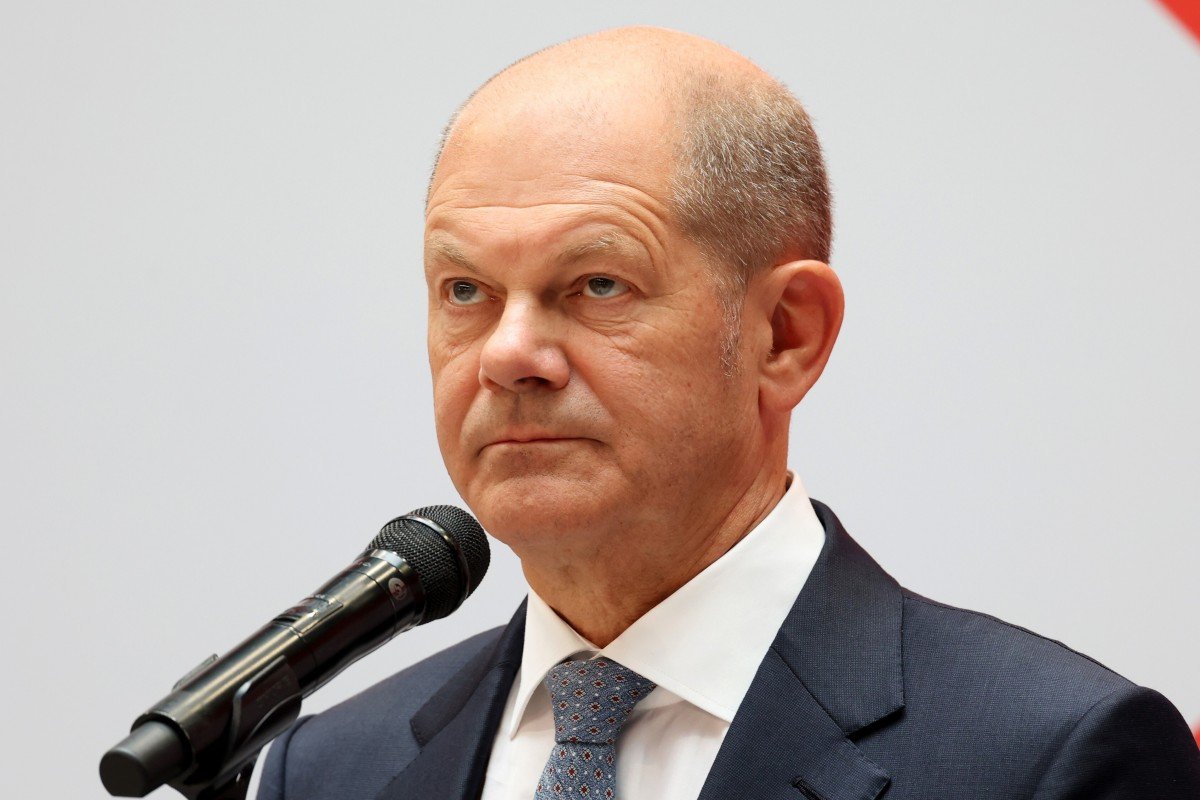India pips countries like Germany, Britain in GDP (PPP) gains: Report
GDP (PPP) means gross domestic product based on purchasing power parity.
The government in Berlin has also approved the shipment of 9D-30 howitzers and ammunition, originally from Estonia. Germany would appear to have jettisoned its policy of not exporting deadly weapons to conflict zones, including Ukraine.

German Chancellor Olaf Scholz (Photo: Twitter)
Germany’s decision to send weapons and other supplies directly to Ukraine marks a critical shift in its foreign and military policies and at a crucial juncture. Ukraine is now fighting Russia to forestall an invasion of its capital, Kiev.
Germany is also prepared to support some restrictions of the SWIFT global banking system for Russia. According to the announcement by Germany’s chancellery, the country will send 1,000 anti-tank weapons and 500 Stinger surface-to-air missiles to Ukraine “as quickly as possible”. The tangible assistance from Germany lends a new facet to Russia’s war with Ukraine.
A major power in Europe has come to Ukraine’s help, though it is early days to call it a rescue mission. As Chancellor Olaf Scholz said in a statement, “The Russian invasion of Ukraine marks a turning point. It threatens our entire post-war order. In this situation, it is our duty to help Ukraine to the best of our ability, to defend itself from Vladimir Putin’s invading army.”
Advertisement
Germany made the announcement on Saturday evening after allowing the Netherlands to ship 400 German-made anti-tank weapons to Ukraine. The government in Berlin has also approved the shipment of 9D-30 howitzers and ammunition, originally from Estonia. Germany would appear to have jettisoned its policy of not exporting deadly weapons to conflict zones, including Ukraine. As recently as last Friday, the government had said it would abide by that policy.
As the strongest economy in the 27-nation European Union, Germany has often been criticized by Ukraine because it has not acted decisively enough to help the embattled country to fend off the Russian invasion. Germany had once contributed 5,000 helmets to Ukraine’s forces, a move that was ridiculed on Twitter. As the Ukrainian President, Volodymyr Zelenskyyi, praised Chancellor Scholz on Twitter, he remarked: “Keep it up. Anti-war coalition in action.”
Germany has also announced that it will send 14 armored vehicles and up to 10,000 tons of fuel to Ukraine. Not wholly unrelated is Switzerland’s decision to jettison its time-honoured policy of neutrality to join the European Union in imposing sanctions. Russian financial assets in the country are to be frozen.
The Swiss President, Ignazio Cassis, has announced that his government will immediately freeze the assets of President Putin, Prime Minister Mikhail Mishustin, and foreign minister Sergei Lavrov, as well as all 367 individuals sanctioned last week by the European Union. Switzerland has let it be known that it was departing from its usual policy of neutrality because of what it called the “unprecedented military attack by Russia on a sovereign European state”. This has been couched in the willingness to help mediate in the conflict, however.
Switzerland has joined its European neighbours in closing its airspace to Russian aircraft, except for humanitarian or diplomatic purposes. However, it will evaluate whether to join in subsequent EU sanctions on a case-by-case basis. Is Russia on course to a bout of unsplendid isolation?
Advertisement